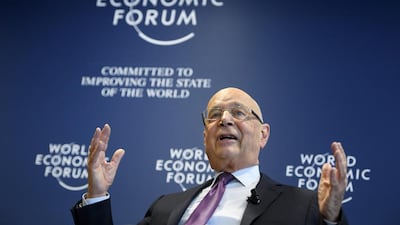The world faces growing risks from income inequity, societal polarisation and intensifying environmental dangers in 2017, according to the World Economic Forum’s annual Global Risks Report.
The report, published on the eve of the WEF’s annual meeting in Davos, Switzerland, said that “trends such as rising income inequality and societal polarisation triggered political change in 2016 and could exacerbate global risks in 2017 if urgent action is not taken”.
The report is compiled after canvassing the views of 750 leading global thinkers. It said that “collaborative action by world leaders will be urgently needed to avert further hardship and volatility in the coming decade”.
Environmental risks are higher than ever, the WEF said. Climate change ranks as a top trend for 2017, with environmental risks – notably extreme weather events and failure of climate change mitigation and adaptation, as well as water crises – featuring for the first time among the most likely and most impactful risks before the world.
In the political arena, the report highlights the continuing turmoil in Syria as a threat to global cooperation. “A lasting shift in the global system from an outward-looking to a more inward-looking stance would be a highly disruptive development. In numerous areas – not least the ongoing crisis in Syria and the migration flows it has created – it is ever clearer how important global cooperation is on the interconnections that shape the risk landscape,” the report says.
It adds: “The highest-profile signs of disruption may have come in western countries – with the United Kingdom’s vote to leave the European Union and president-elect Donald Trump’s victory in the US presidential election – but across the globe there is evidence of a growing backlash against elements of the domestic and international status quo.”
Klaus Schwab, the founder and executive chairman of the WEF, said in the report: “The year 2017 will present a pivotal moment for the global community. The threat of a less cooperative, more inward-looking world also creates the opportunity to address global risks and the trends that drive them.”
Rising income and wealth disparity were voted the most important trends that will determine global development over the next decade.
The report also highlighted the challenge of accelerating technological development – what the WEF calls the Fourth Industrial Revolution – and the rapid spread of disinformation in the “post truth” era, saying that trust in leadership is being eroded in the modern world.
business@thenational.ae
Follow The National's Business section on Twitter

